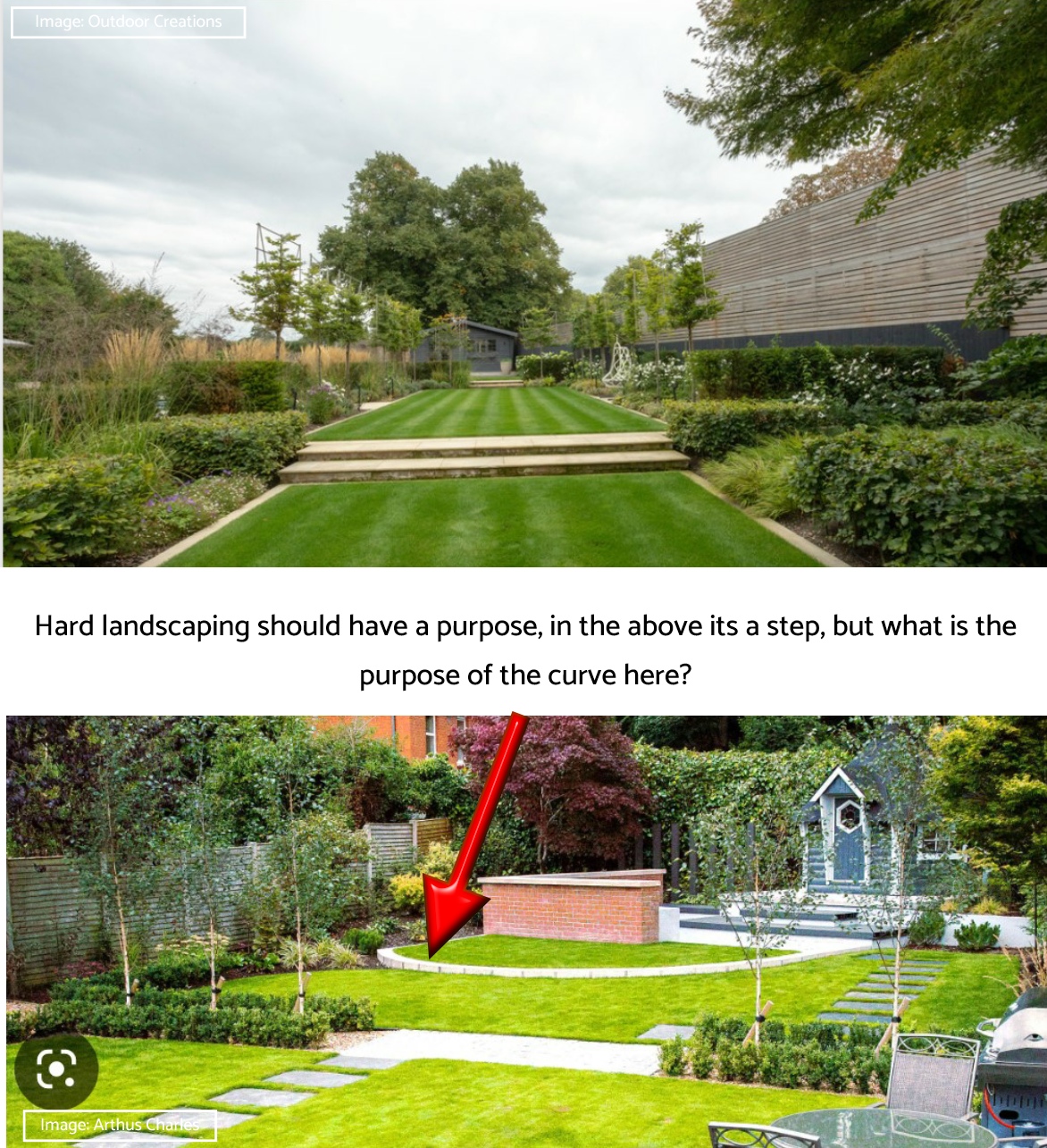Hilton Head Landscapes - Questions
Hilton Head Landscapes - Questions
Blog Article
Hilton Head Landscapes for Beginners
Table of ContentsThings about Hilton Head LandscapesNot known Factual Statements About Hilton Head Landscapes The 15-Second Trick For Hilton Head LandscapesThe 3-Minute Rule for Hilton Head LandscapesHow Hilton Head Landscapes can Save You Time, Stress, and Money.More About Hilton Head LandscapesThe Best Strategy To Use For Hilton Head Landscapes
Line creates all kinds and patterns and can be made use of in a selection of methods the landscape. Line in the landscape is created by the side between 2 products, the outline or shape of a form, or a long linear attribute. Lines are a powerful device for the designer due to the fact that they can be used to create a boundless variety of shapes and kinds, and they regulate activity of the eye and the body.

Lines can have several characteristics, such as those explained below, yet they usually offer different functions. Number 1. Lines in the landscape - bluffton landscaping. The homes of lines identify just how individuals reply to the landscape, both mentally and literally. Straight lines are structural and forceful; they produce an official personality, are usually related to a balanced layout, and lead the eye straight to a focal factor.
Hilton Head Landscapes - An Overview
Straight lines are most typically discovered in hardscape sides and material. Curved lines create an informal, natural, loosened up personality that is connected a lot more with nature and asymmetrical balance. Curved lines relocate the eye at a slower pace and include secret to the space by creating covert views. Vertical lines relocate the eye up, making a space really feel bigger.
Vertical lines in the landscape consist of tall, slim plant product, such as trees, or high structures, such as an arbor or a bird house on a pole. Horizontal lines move the eye along the ground plane and can make a space really feel larger. Low lines are more controlled and develop a sensation of rest or repose.
Hilton Head Landscapes Things To Know Before You Get This
Reduced lines are created by reduced yard walls, sidewalks, and short hedges. Lines are made use of to draw forms on a plan. In strategy view, they define plant beds and hardscape areas. Lines are likewise developed by the upright kinds of developed attributes and plant material. There are three key line types that create form in the landscape: bedlines, hardscape lines, and plant lines.
Bedlines connect plant material to your house and hardscape due to the fact that the eye adheres to the line, moving the gaze through the landscape. Hardscape lines are created by the side of the hardscape, which defines the constructed structure. Line can additionally be developed by long and narrow materials, such as a fence or wall surface.
The Of Hilton Head Landscapes
Kind is found in both hardscape and plants, and it is generally the dominant aesthetic component that spatially organizes the landscape and often determines the style of the garden. The type of structures, plant beds, and yard accessories additionally figures out the general kind style of the garden. Formal, geometric kinds consist of circles, squares, and polygons.
Plants produce form in the yard with their outlines or silhouettes, however type can also be defined by a gap or negative space between plants - hilton head landscapers (https://www.artstation.com/stevengonzales53/profile). Circles can be cycles, or they can be separated into fifty percent circles or circle sections and incorporated with lines to create arcs and tangents
The Single Strategy To Use For Hilton Head Landscapes
Circles are a strong layout kind since the eye is constantly attracted to the center, which can be made use of to emphasize a focal factor or connect various other types. Circular kinds in hardscape and lawn panels.
The square type can likewise be segmented and previously owned repetitively to develop a grid pattern. Unlike circles, squares are stronger on the sides, which can be aligned or overlapped to produce special patterns and even more complicated types. Polygons are many-sided kinds with straight sides. Triangulars, for instance, are three-sided polygons.
Twisting lines frequently imitate the natural training course of rivers or streams and can be defined as smooth lines with deeply curved undulations. Twisting lines (Number 3) work well for pathways, plant bedlines, and dry stream beds. Meandering lines can add passion and mystery to a yard by leading visitors around corners to uncover brand-new sights and rooms.
All about Hilton Head Landscapes

Common plant kinds are well established and standard, as kind is the most regular and identifiable feature of plants. Type can also be developed with the massing of plants, where the general mass creates a various kind than an individual plant.
A very different type must be made use of with careone or 2 work well as a prime focus, but too several create chaos. All-natural plant types, instead than over-trimmed kinds, ought to establish the mass of the structure. The relevance of total kind is essentially reliant on the watching perspectivethe kind of a tree can appear fairly different to an individual standing under the cover versus checking out the tree from a range in an open field.
The Ultimate Guide To Hilton Head Landscapes
Plant types likewise produce and define the space or open areas in between the plants, developing either convex or concave forms in the voids. High-arching tree branches typically create a concave open space under the branches, and a rounded cover with reduced branches fills the space to create a convex form in the open area under the tree.

Report this page